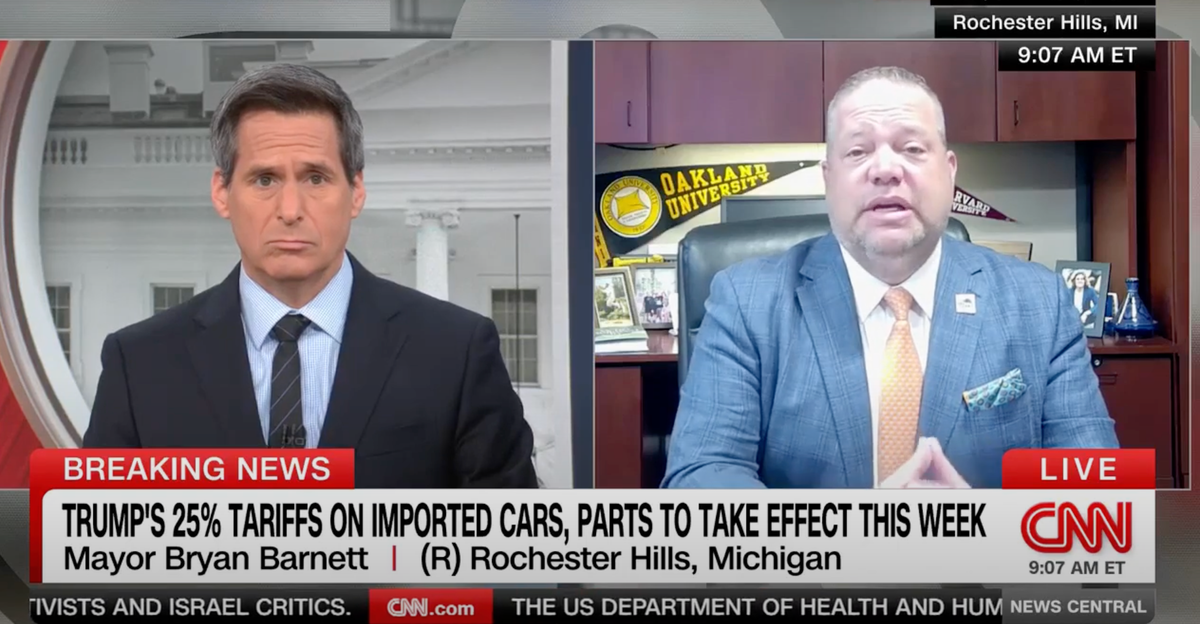
A Michigan mayor whose biggest trading partners are Canada and Mexico said the Trump's administration's upcoming tariffs would provide a perfect storm to bring his economy down.
CNN's John Berman asked Mayor Bryan Burnett (R), who heads the city of Rochester Hills, "It's hard to know what tariffs are going to go into place April 2 as the president promised. But, let's say it's 25% on all cars and car parts, what would the impact be on you in Rochester Hills?"
"It would be devastating," Burnett said. "There's so much uncertainty as we enter this week where so much is supposed to happen. I think industries are really paralyzed to try to understand how to move forward."
Berman asked how the mayor was trying to prepare for whatever happens on April 2.
ALSO READ: 'The Hard Reset': Here's how the U.S. is exporting terrorism around the world
"Well, I've been talking to a lot of my businesses community to try to find out what they're doing. And, I mean, the scenario is pretty simple, at least what most people think is, you know, higher tariffs lead to higher costs. Higher cost leads to lower demand. Lower demand leads to lower production. And, ultimately, that's where it becomes the mayor's issue. Lower production and lower demand means job loss, and that really is a significant issue.
" ... I hope the president and his team are able to move quickly. I was pleased that he had a very positive meeting with the [Canadian] prime minister at the end of last week, but the uncertainty is, you see the markets reacting to it. It's daunting. It's impossible to prepare."
Burnett said he thought Trump's tariffs could "very quickly" lead to job losses in his city.
"I think most of the folks I'm talking to say, you know, they can survive this kind of back and forth for about maybe 30 days," Burnett said. "You know, they've been preparing to try to have supply here to try to handle supply chains. But if this is something that we're waiting for jobs to repatriate back to the United States, we know that takes — that's a great and wonderful plan. We're all supportive of that — but that can take 24 to 36 months, and most companies wouldn't be operating at the same levels they are now if you have this tariff environment for two or three years. It simply couldn't be the same."




